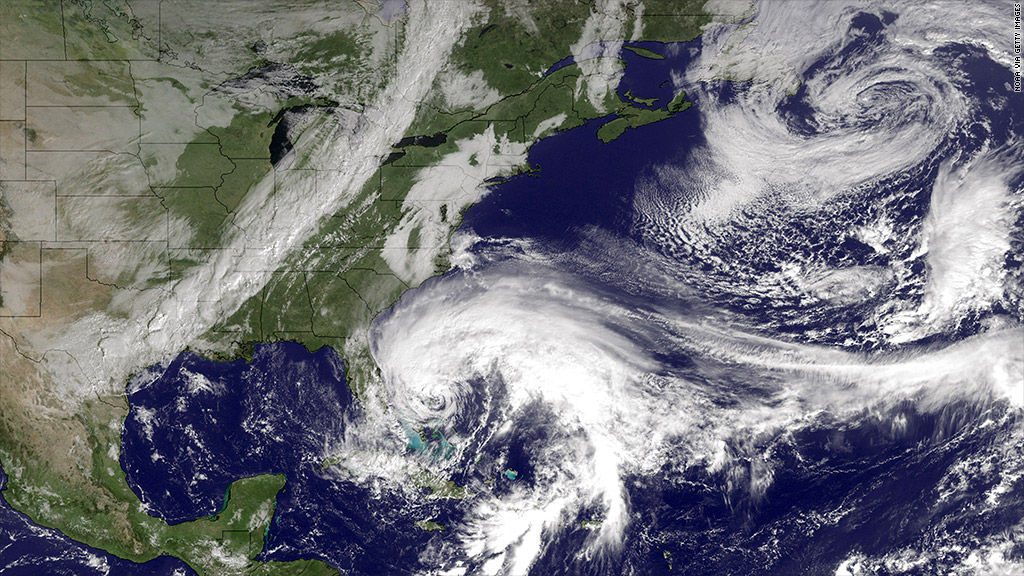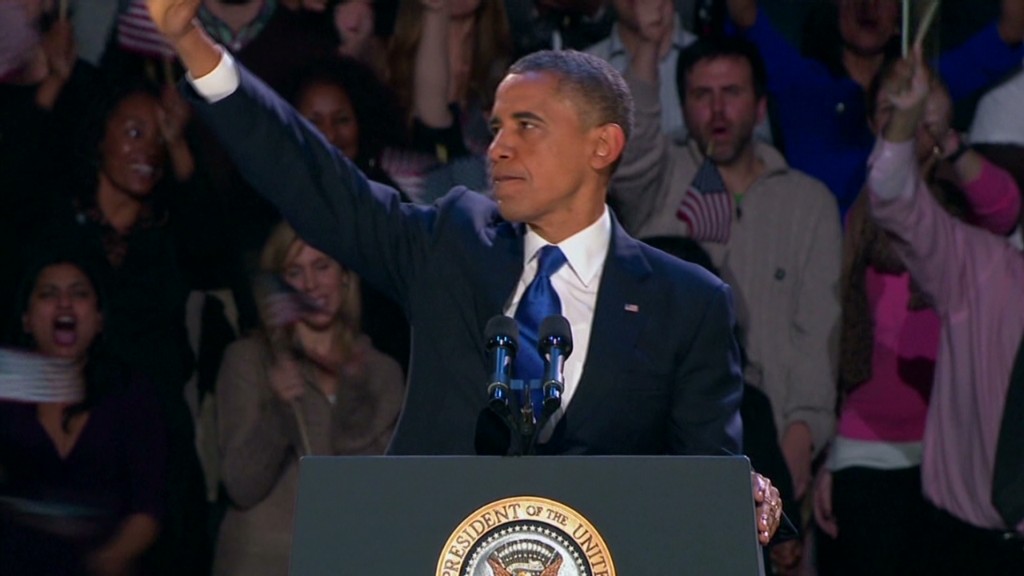
Climate change is once again a hot topic in the Untied States.
Hurricane Sandy brought the issue back into the spotlight just days before the presidential election. Pundits were quick to note the irony of a massive superstorm striking after three presidential debates that didn't mention climate change once.
After the storm, New York Mayor Michael Bloomberg evoked the issue again, pointing to climate change specifically in an unexpected, last-minute endorsement of President Obama.
And if there was any lingering doubt about the issue being back in the limelight, the president dispelled it Tuesday night by mentioning global warming in his acceptance speech alongside other priorities like budget and tax reform.
"We want our children to live in an America that isn't burdened by debt, that isn't weakened by inequality, that isn't threatened by the destructive power of a warming planet," he said.
Senate Majority Leader Harry Reid also indicated there could be action on the climate front.
"Climate change is an extremely important issue for me and I hope we can address it reasonably," he said Wednesday at a press conference. "It's something, as we've seen with these storms that are overwhelming our country and the world, we need to do something about it."
The question now is this: when do we see an actual proposal to limit greenhouse gases, and what does it look like?
Reining in climate change
One option is some type of tax on carbon, coming in 2013 as part of broader negotiations over the budget and deficit.
There are many different ways to structure a carbon tax, but it generally involves taxing the use of fossil fuels like coal or oil, and using the proceeds for tax cuts, deficit reduction or clean energy funding. Consumers most likely see it in the form of higher utility bills or, possibly, gasoline prices. Most proposals have some type of mechanism to exempt low income people from paying it.
One proposal studied by the Congressional Budget Office said a carbon tax would raise between $88 billion and $144 billion a year for the government.
Related: carbon tax gets unusual support
The idea has bipartisan support. Conservatives like it as the money can be used to reduce the deficit or cut other taxes, and liberals like it because it makes cleaner energy like wind and solar more competitive.
"If we're going to do a grand deal on taxes, [a carbon tax] will be high on the president's list of priorities," said Dan Clifton, a partner at Strategas, a research firm that serves institutional investors. "But it would have to be part of a compromise for Republicans to accept something."
Clifton puts the chances of a carbon tax up for serious debate at 20% currently, but higher if a grand deal on taxes takes shape.
Still, the chances of a carbon tax actually passing remains low.
"I think there will be some opposition from many sides," said Whitney Stanco, an energy analyst at Guggenheim Securities' Washington Research Group. "From conservatives because it's a tax increase, from liberals because it's likely a regressive tax increase and from environmental groups because it would be used to pay down the deficit, not invest in clean technologies."
Stanco sees several climate proposals emerging in the next Congress, which could include anything from requirements that utilities buy more renewable power to the rebirth of laws capping greenhouse gases. But she doesn't see any of them going very far.
"Yes, the climate change issue will likely gain some momentum post-Sandy, but it's got a long way to go from its current rank at the bottom of voter's priority list."

Another way additional climate change rules could become more enshrined in U.S. policy, is the continued tightening of rules from the Environmental Protection Agency, combined with actions from other nations that force costs on U.S. companies that aren't operating under some type of mandatory carbon reduction plan.
"Warming policy is back on the front burner, but we think it has less to do with superstorm Sandy and more to do with trade pressures on the other side of the Atlantic and pending EPA rules," said Kevin Book, managing director of research at ClearView Energy Partners. "A second-term Obama Administration sets up progress on both fronts."
--CNN's Lisa Desjardins contributed to this report



